
Daniel Unruh
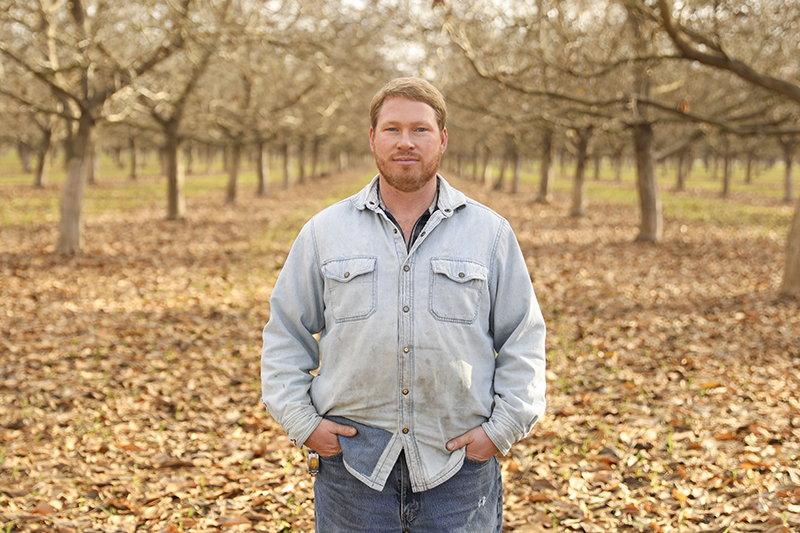
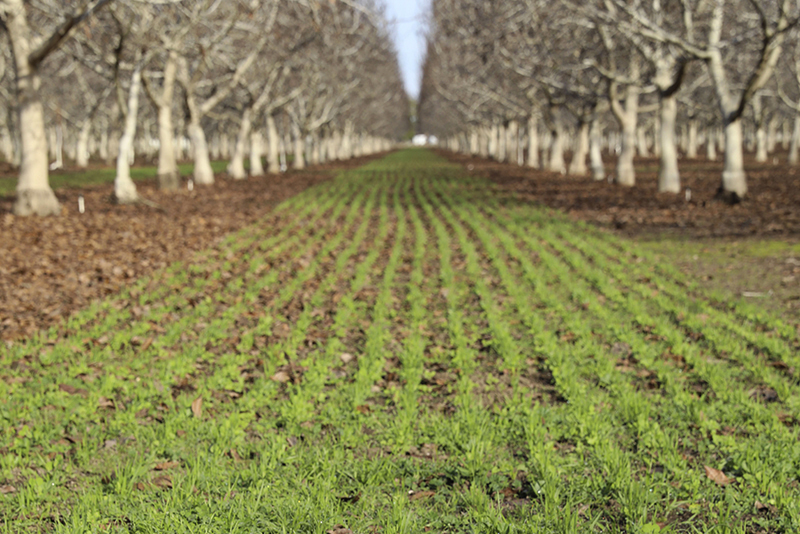
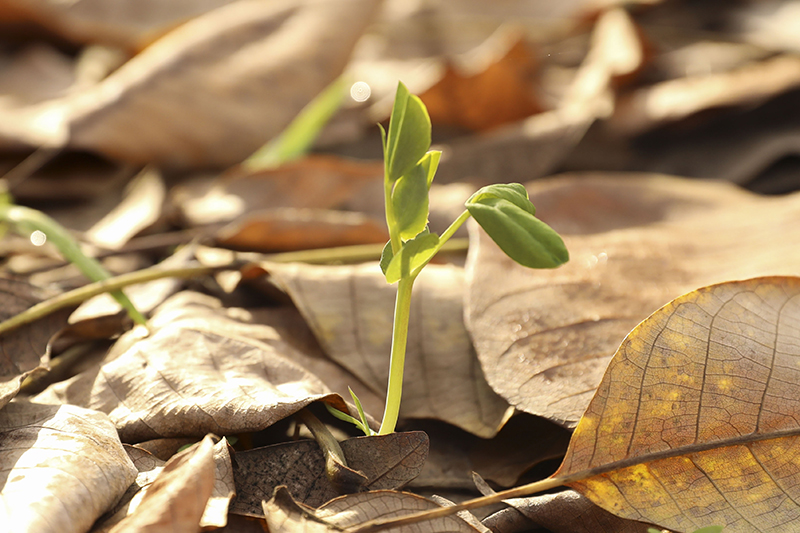
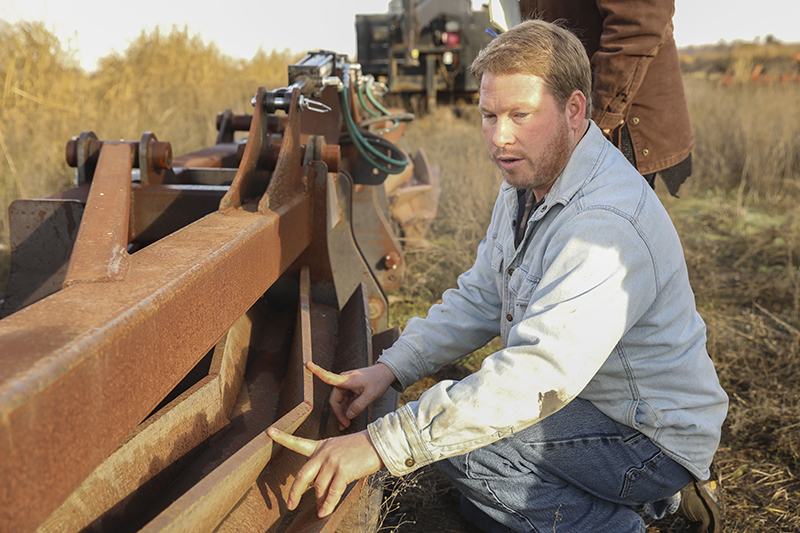
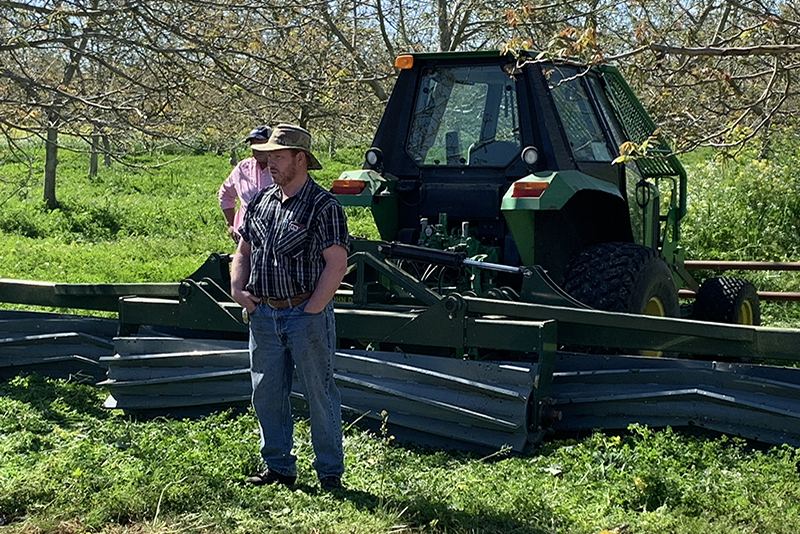
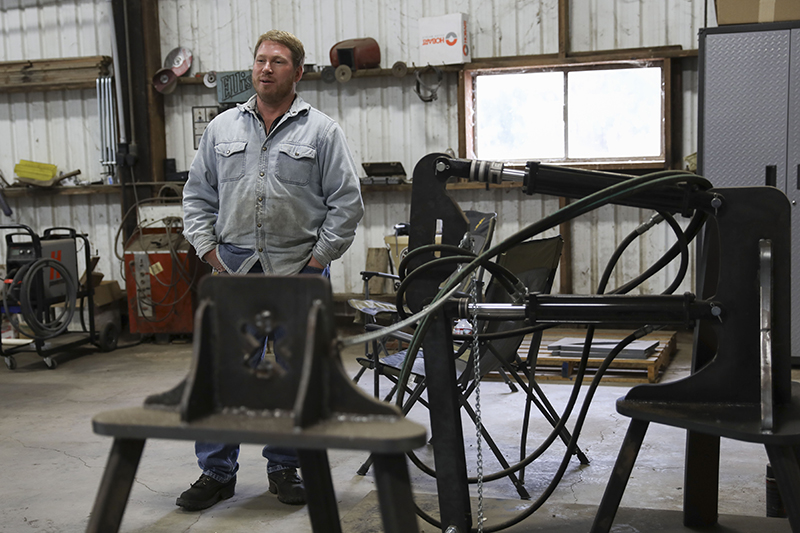
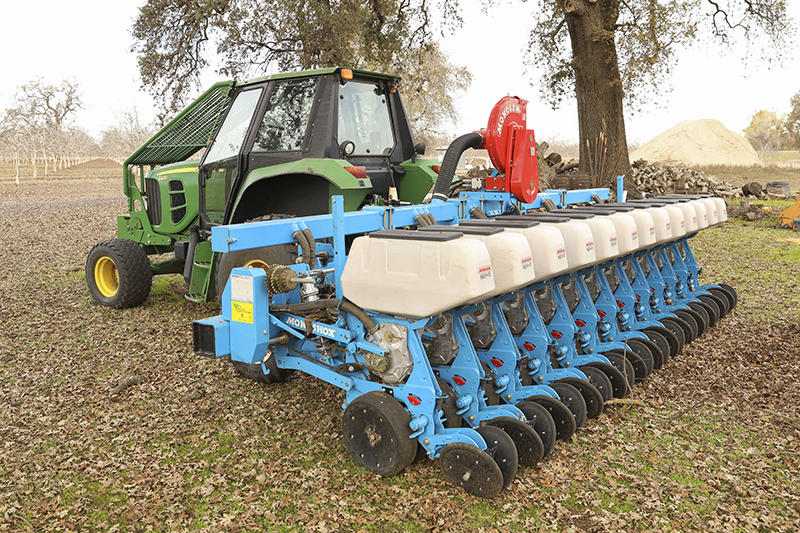
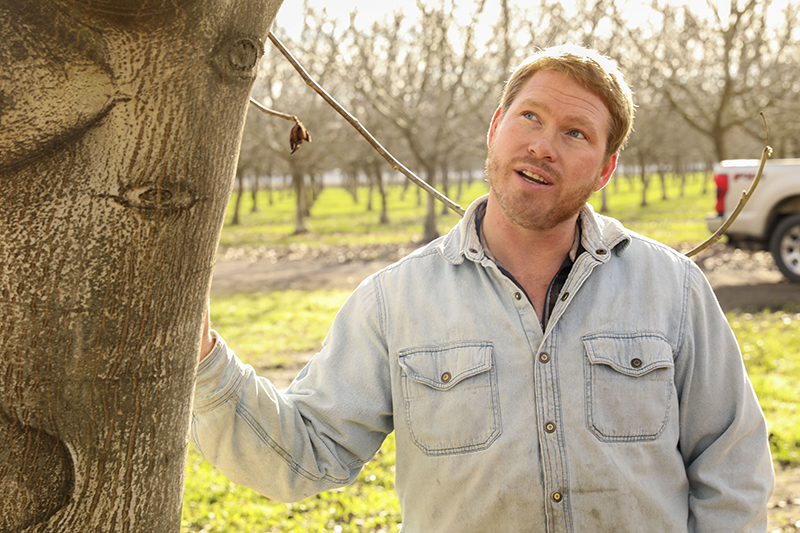
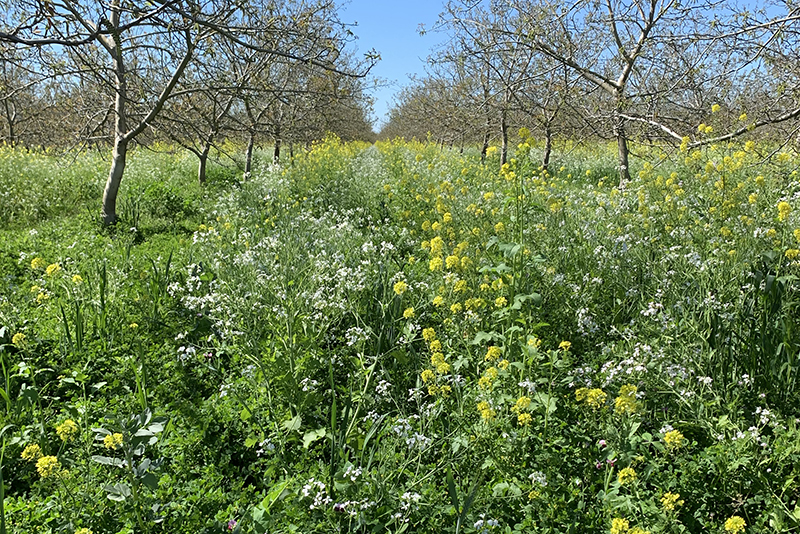
“The direction I’m going is, of course, regenerative.”
When we met with Colusa walnut farmer Daniel Unruh in 2019, he had been in the process of transforming the 193-acre conventional family farm he inherited from his father-in-law into what he intends to be a model for Regenerative Agriculture. It has taken time and effort—and he still used fertilizers and chemicals in what he believed was an intermediate stage of the process at the time this article was first written—but the work of regenerating his soil was already paying off with thriving fields and higher net profits. When we updated this page in August 2023 (see below) this was even more true. So much so, in fact, that many people in his local community are starting to follow his lead.
The keys to Unruh’s success have been cover crops, reduced tillage, and his own innovative farm equipment inventions designed to stimulate the cover crops to create biomass more efficiently. Eventually, improved soil biology may lead to significantly improved yields but even if that doesn’t prove true, Unruh’s approach has already led to lower input costs and, therefore, higher profits. That is what he believes to be one of the biggest benefits.
How Daniel Unruh’s Roller Crimper Improves His Soil
Unruh plants his cover crops before the rainy season in the fall. In April, he uses the roller crimper he designed to roll down the cover crops while crimping the stem. These two processes terminate the cover crop and allows the material to decompose more quickly. There are other roller crimpers on the market. One thing that makes his different is the use of chevron crimps (see photo above). The design supports better crimping from Daniel’s perspective.
As he explains: “You drastically increase the efficiency when you put more weight and pressure on the ground when you have a chevron design because it’s using all of the weight on a shorter area than if you just had a flat bar.”
Some farmers use equipment designed to shred their plant material. Unruh strongly feels that rolling is significantly more beneficial. “A shredder doesn’t leave a friendly environment for microorganisms, “ he says. “Microorganisms love a dark, stable temperature environment that’s moist. When I shred, I make a dense layer of plant material and the microorganisms, for a while, are aerobic because there’s some oxygen in there for that decomposition.” But as time goes by, he explains, “everything from a quarter inch down and below that, if you have a thick mat of material, becomes anaerobic and starts to stink . . . an anaerobic decomposition situation that is a very unfriendly environment for the aerobic biology that we want in our soil.”
“By rolling this down and just leaving it lay, you have coarser material. It lays down. It makes a fairly consistent environment because that’s what plant material does on soil. It holds moisture there, and it’s well aerated because it’s not laying tight." See his roller crimper in action:
Improved Soil Microbiology is Unruh’s Continued Focus
The microbiology of his soil is of such importance to Daniel Unruh’s intentions for his farm that he is now experimenting with inoculating his seeds with fungal-dominant compost. “Why would I not put in microorganisms that naturally occur in my soil to benefit me and those that possibly follow after me on that ranch?” he asked. “We, as farmers, like to talk about big yields, but the fact of the matter is we should get away from talking about big yields and we should start asking people what their inputs are.”
Unruh would love to get away from using chemicals, and wants to generate an ecosystem within his own soils that operate naturally, with as little human intervention as possible. That would not only lower the cost of his inputs and increase his profits regardless of yields even more, he believes that working toward a sustainable approach to farming will benefit his operation for generations to come.
Results Reported in August 2023
In August 2023, the Soil Health Institute published the results of a multi-year collaboration with the National Association of Conservation districts (PDF) on the positive impacts of improving soil health on farm profitability and resilience. Daniel Unruh was one of 30 farmers interviewed for this study. His walnut orchard showed a net income increase of $425.19/acre—one of the best results in the study—by using regenerative agriculture as his soil management system and cover crops. He decreased production expenses by employing these methods over the course of six years. He also reported improved soil structure and water infiltration; reduced erosion; increased soil organic matter; reduced nitrogen and irrigation; and less insect and disease pressure.
The following video was recorded as part of the study on March 13, 2020. In it, Daniel Unruh describes his journey into these practices and the advice and enthusiastic encouragement he has for others.
